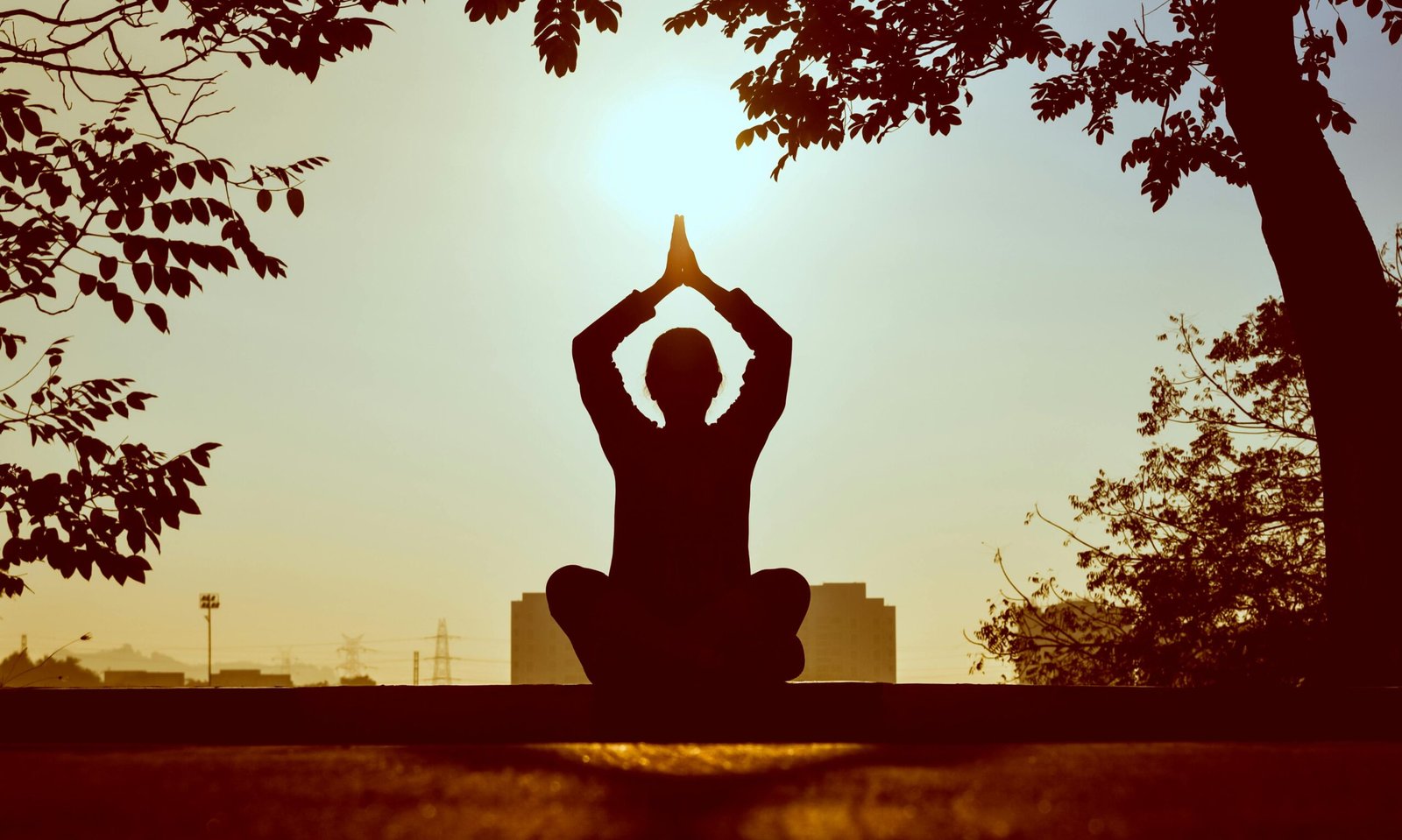One of the key benefits of yoga exercise is its ability to improve flexibility and strength. The various poses and movements in yoga help to stretch and tone the muscles, making them more flexible and resilient. This increased flexibility can be particularly beneficial for athletes or individuals who engage in activities that require a wide range of motion, such as dancers or gymnasts.
In addition to physical benefits, yoga exercise also promotes mental well-being. The combination of deep breathing, mindfulness, and meditation in yoga helps to calm the mind and reduce stress. This can be especially beneficial for individuals who lead busy and hectic lives, as it provides a much-needed opportunity to relax and unwind.
Furthermore, regular practice of yoga exercise has been shown to improve balance and coordination. The various poses and movements in yoga require concentration and focus, which can help to improve proprioception – the body’s awareness of its position in space. This can be particularly beneficial for older adults, as it can help to prevent falls and improve overall stability.
Another advantage of yoga exercise is its ability to improve posture. Many of the poses in yoga require proper alignment of the spine, which can help to correct poor posture habits. By strengthening the muscles of the back and core, yoga can help individuals maintain a more upright and balanced posture, reducing the risk of back and neck pain.
Moreover, yoga exercise has been found to have a positive impact on cardiovascular health. The flowing movements and deep breathing in yoga can help to improve circulation and lower blood pressure. Regular practice of yoga has also been shown to reduce the risk of heart disease and improve overall cardiovascular fitness.
In conclusion, yoga exercise offers a wide range of benefits for both the body and mind. From increased flexibility and strength to improved mental well-being and cardiovascular health, it is a practice that can enhance overall physical and mental fitness. Whether you are a beginner or an experienced practitioner, incorporating yoga into your routine can have a profound impact on your well-being.
Furthermore, yoga exercise has been found to have a positive impact on cardiovascular health. The flowing movements and deep breathing in yoga help to improve circulation and increase the oxygen supply to the body. This can lower blood pressure, reduce the risk of heart disease, and improve overall cardiovascular function.
In addition to its physical benefits, yoga exercise also has a profound effect on mental and emotional well-being. The practice of yoga involves mindfulness and meditation, which can help reduce stress and promote relaxation. By focusing on the breath and being present in the moment, yoga can help calm the mind and alleviate anxiety and depression.
Moreover, yoga has been shown to improve sleep quality. The relaxation techniques and gentle movements in yoga can help reduce insomnia and promote a restful night’s sleep. By incorporating a regular yoga practice into your routine, you may find that you wake up feeling more refreshed and energized.
Another important aspect of yoga exercise is its ability to improve overall body awareness and connection. Through the practice of yoga, individuals can become more attuned to their bodies and develop a deeper understanding of their physical and emotional needs. This can lead to better self-care and a greater sense of overall well-being.
Lastly, yoga exercise can also have a positive impact on digestion and detoxification. The twisting poses in yoga help to stimulate the digestive system and improve circulation to the organs. This can aid in digestion, reduce bloating, and promote a healthy gut. Additionally, the breath control techniques in yoga can help stimulate the lymphatic system, which is responsible for detoxifying the body and removing waste products.
In conclusion, the physical benefits of yoga exercise are vast and varied. From improved flexibility and strength to better cardiovascular health and digestion, yoga has the potential to transform both the body and mind. By incorporating a regular yoga practice into your routine, you can experience these benefits and enhance your overall well-being.
Mental and Emotional Benefits of Yoga Exercise
While the physical benefits of yoga exercise are well-known, the practice also offers numerous mental and emotional benefits. Yoga is often referred to as a moving meditation, as it encourages mindfulness and focus on the present moment.
Yoga can help reduce stress and anxiety by promoting relaxation and deep breathing. The combination of physical movement, breath control, and meditation can help calm the nervous system and promote a sense of inner peace and tranquility.
Regular yoga practice can also improve sleep quality and reduce insomnia. The relaxation techniques and breathing exercises in yoga can help quiet the mind and prepare the body for restful sleep. By practicing yoga before bed, you can create a bedtime routine that promotes relaxation and better sleep.
In addition to reducing stress and improving sleep, yoga can also enhance mental clarity and focus. The practice of holding poses and maintaining balance requires concentration and mental discipline. This can translate into improved cognitive function and the ability to stay focused on tasks throughout the day.
Furthermore, yoga can be a powerful tool for emotional healing and self-discovery. Through the practice of yoga, individuals can develop a deeper connection with their emotions and gain insight into their thought patterns and behaviors. This self-awareness can lead to greater emotional resilience and the ability to navigate life’s challenges with more ease and grace.
Yoga also provides a safe and supportive space for individuals to explore and release emotions. The physical movement and breathwork in yoga can help release tension and stagnant energy from the body, allowing for emotional release and healing. This can be particularly beneficial for individuals dealing with trauma or emotional pain.
Overall, the mental and emotional benefits of yoga exercise are vast and can have a profound impact on one’s overall well-being. By incorporating yoga into your daily routine, you can cultivate a greater sense of balance, peace, and emotional resilience.
Spiritual Benefits of Yoga Exercise
Yoga has deep roots in spirituality and can be a tool for self-discovery and personal growth. The practice of yoga encourages self-reflection and introspection, allowing individuals to connect with their inner selves and cultivate a sense of inner peace and harmony.
Yoga philosophy teaches principles such as non-violence, truthfulness, and contentment, which can guide individuals in their daily lives and relationships. By incorporating these principles into their practice, yogis can develop a greater sense of compassion, empathy, and gratitude.
Moreover, yoga offers a unique opportunity for individuals to explore and nourish their spiritual side. In today’s fast-paced and chaotic world, finding moments of stillness and connection can be challenging. However, yoga provides a space for individuals to slow down, turn inward, and connect with something greater than themselves.
Through practices such as chanting, meditation, and breathwork, yogis can tap into their spiritual essence and cultivate a deeper connection with their higher selves. Chanting, for example, involves repeating sacred sounds or mantras, which can help focus the mind and create a sense of unity with the divine.
Meditation, on the other hand, allows individuals to quiet the mind and enter a state of deep relaxation and awareness. By letting go of external distractions and turning their attention inward, yogis can access a profound sense of peace and clarity. This state of heightened consciousness can lead to spiritual insights and a greater understanding of oneself and the world.
Furthermore, the practice of yoga encourages individuals to be fully present in the moment. By focusing on the breath and the sensations in the body, yogis learn to let go of worries about the past or future and embrace the present moment. This mindfulness practice not only enhances the physical benefits of yoga but also opens the door to spiritual growth and connection.
In conclusion, yoga is not just a physical exercise; it is a holistic practice that encompasses the mind, body, and spirit. By incorporating spiritual elements into their practice, individuals can experience a deeper sense of self-awareness, inner peace, and connection with something greater than themselves.
Another option for getting started with yoga exercise is to join a yoga retreat or workshop. These immersive experiences provide an opportunity to fully immerse yourself in the practice of yoga and learn from experienced teachers. Yoga retreats are often held in beautiful and serene locations, allowing participants to connect with nature and find inner peace.
If you prefer a more personalized approach, you can hire a private yoga instructor. This allows you to have one-on-one sessions tailored to your specific needs and goals. A private instructor can provide individualized guidance and adjustments to help you progress in your practice.
In addition to attending classes or practicing at home, it’s beneficial to incorporate yoga into your daily routine. This can be as simple as taking a few minutes each day to stretch and breathe deeply. These small moments of mindfulness can help reduce stress, increase flexibility, and improve overall well-being.
As you continue your yoga journey, you may find it helpful to invest in some basic yoga props. These can include a yoga mat, blocks, straps, and bolsters. These props can assist you in achieving proper alignment and provide support during challenging poses.
Remember that yoga is not just about the physical practice, but also about cultivating a sense of mindfulness and inner peace. It’s important to approach your practice with an open mind and a willingness to explore the mind-body connection.
In conclusion, there are numerous ways to get started with yoga exercise, whether it’s attending classes, practicing at home, joining a retreat, or hiring a private instructor. The key is to find a method that resonates with you and fits into your lifestyle. With dedication and consistency, yoga can become a transformative practice that enhances your physical, mental, and spiritual well-being.


